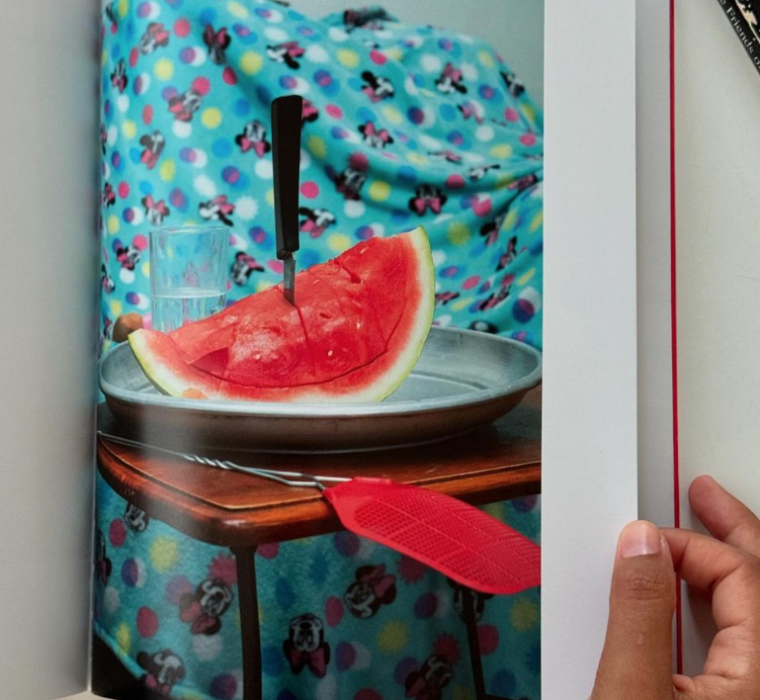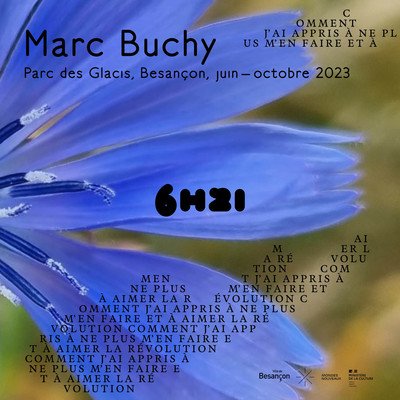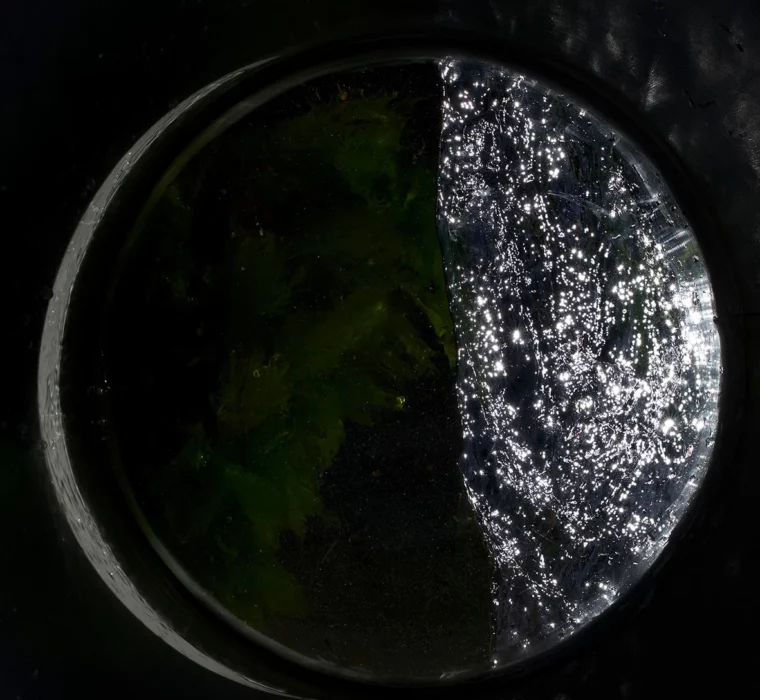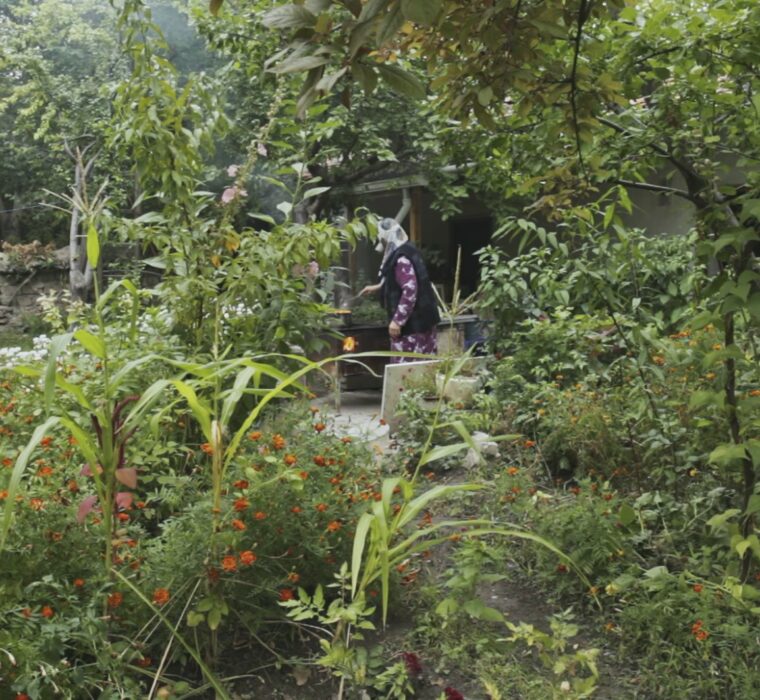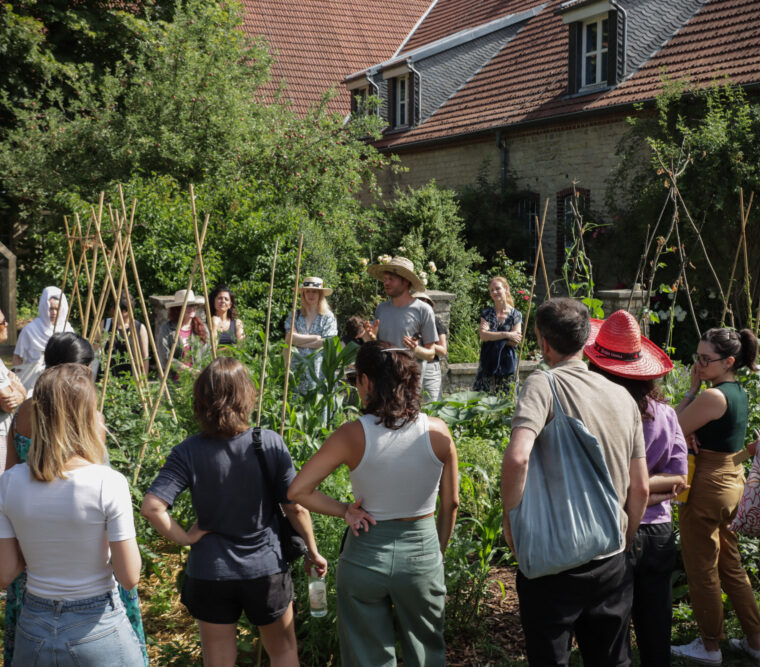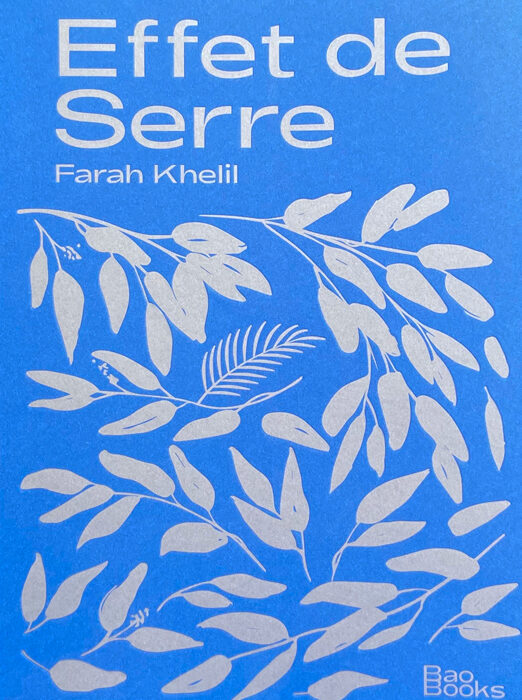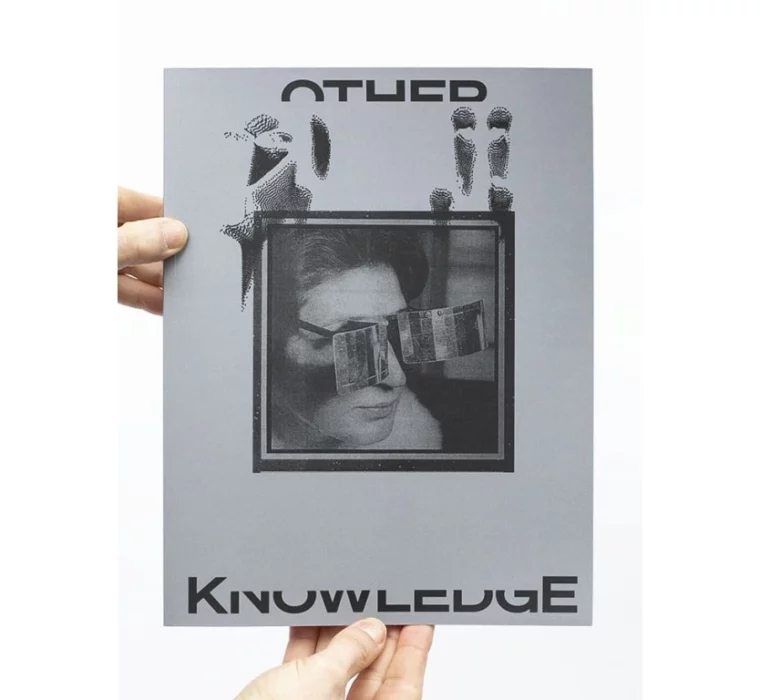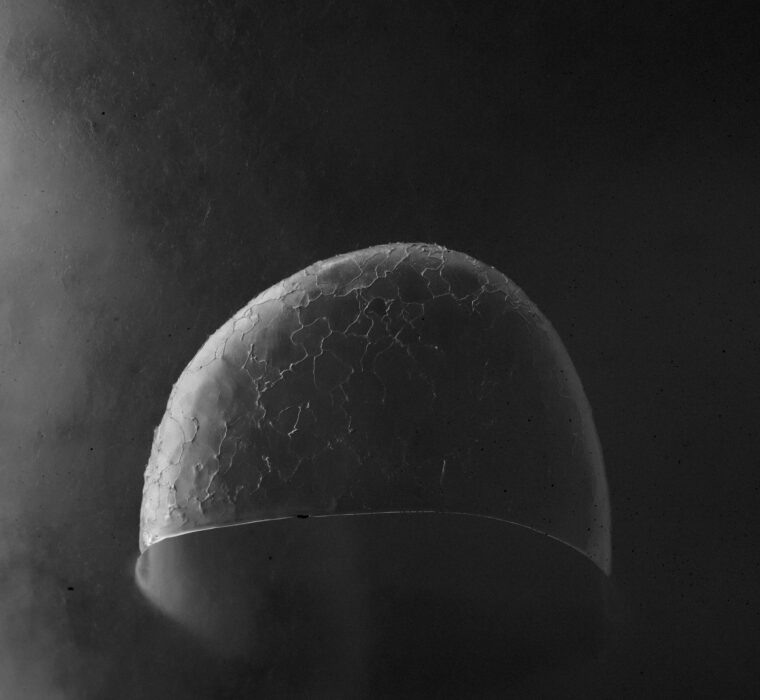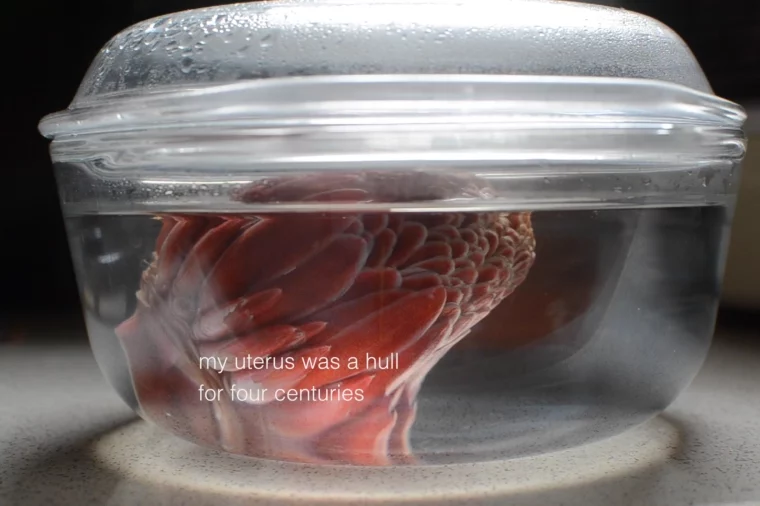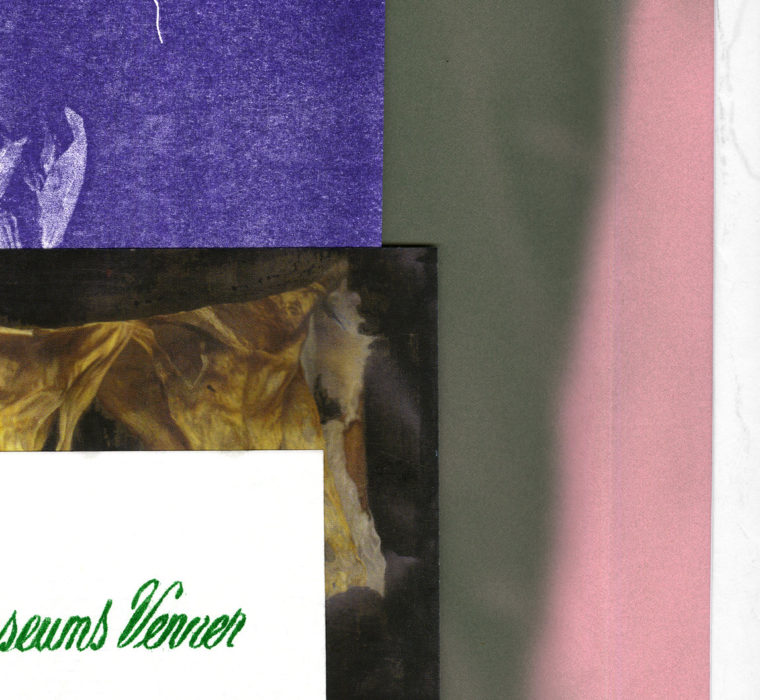Rehearsing Hospitalities – Companion 1
Published by Archive Books, Berlin, with Frame Contemporary Art Finland, Helsinki
Editors Yvonne Billimore & Jussi Koitela
Contributors
Asematila
Yvonne Billimore
Clelia Coussonnet
Rick Dolphijn
Jussi Koitela
Pia Lindman
Rachael Rakes
Vidha Saumya
Sumugan Sivanesan & Irina Mutt
After participating in a residency at HIAP Suomenlinna with Frame Finland in May 2019, I was invited back to Helsinki in September 2019 for the symposium Gathering for Rehearsing Hospitalities where I gave a speech and discussed with Rosa Tolnov Clausen. I also contributed the essay Thoughts on textile, knowledge production and transmission to the Companion 1, first printed volume in the series of these gatherings.
During my residency, I researched the use of textile in visual arts and design in Finland. Setting to investigate the question of knowledge transmission, I drifted, exploring different ways of knowing and meeting creatives who approach knowledge as tactile, wearable, embodied and symbolised. Free from dust, rust and categories, they caress a living knowledge that can’t be contained in books, shelves and theories.
Working with textile means processing a material that is alive via your physicality and body. While techniques can be acquired in an academic way, most of this corporeal and gestural knowledge stems from both experimentation, and skills transmitted orally and/ or through experience.
Considering fabric in learning/unlearning contexts, my essay shared meandering and abstract reflections around these ideas. It also invited Sonia Kallel, a Tunisia visual artist, and Laura Spring, a Scottish textile designer, to share a project involving these dynamics of process.
Rehearsing Hospitalities – Companion 1
Published by Archive Books, Berlin, with Frame Contemporary Art Finland, Helsinki
Editors Yvonne Billimore & Jussi Koitela
Contributors
Asematila
Yvonne Billimore
Clelia Coussonnet
Rick Dolphijn
Jussi Koitela
Pia Lindman
Rachael Rakes
Vidha Saumya
Sumugan Sivanesan & Irina Mutt
After participating in a residency at HIAP Suomenlinna with Frame Finland in May 2019, I was invited back to Helsinki in September 2019 for the symposium Gathering for Rehearsing Hospitalities where I gave a speech and discussed with Rosa Tolnov Clausen. I also contributed the essay Thoughts on textile, knowledge production and transmission to the Companion 1, first printed volume in the series of these gatherings.
During my residency, I researched the use of textile in visual arts and design in Finland. Setting to investigate the question of knowledge transmission, I drifted, exploring different ways of knowing and meeting creatives who approach knowledge as tactile, wearable, embodied and symbolised. Free from dust, rust and categories, they caress a living knowledge that can’t be contained in books, shelves and theories.
Working with textile means processing a material that is alive via your physicality and body. While techniques can be acquired in an academic way, most of this corporeal and gestural knowledge stems from both experimentation, and skills transmitted orally and/ or through experience.
Considering fabric in learning/unlearning contexts, my essay shared meandering and abstract reflections around these ideas. It also invited Sonia Kallel, a Tunisia visual artist, and Laura Spring, a Scottish textile designer, to share a project involving these dynamics of process.
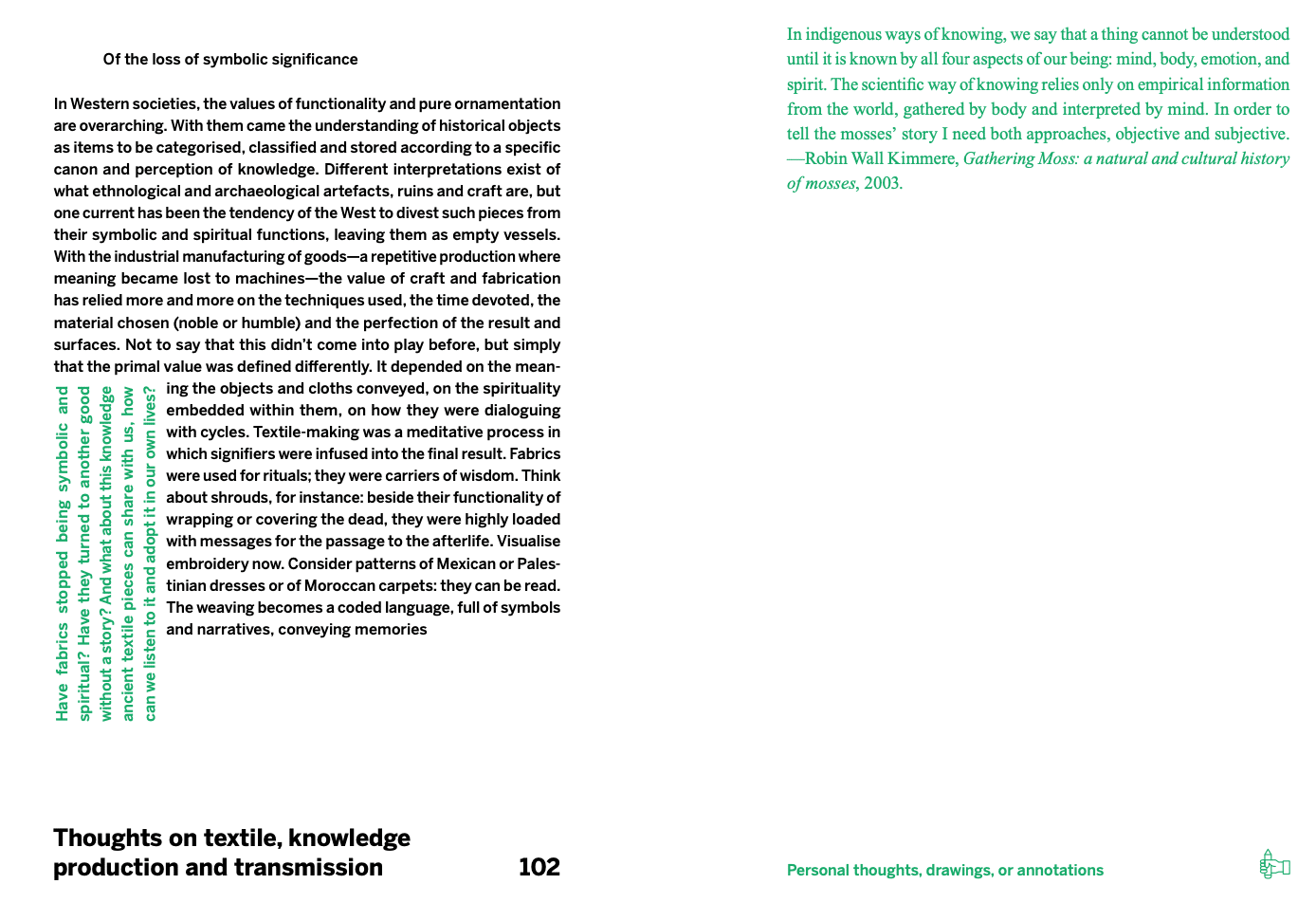
‘In Western societies, the values of functionality and pure ornamentation are overarching. With them came the understanding of historical objects as items to be categorised, classified and stored according to a specific canon and perception of knowledge. Different interpretations exist of what ethnological and archaeological artefacts, ruins and craft are, but one current has been the tendency of the West to divest such pieces from their symbolic and spiritual functions, leaving them as empty vessels.’
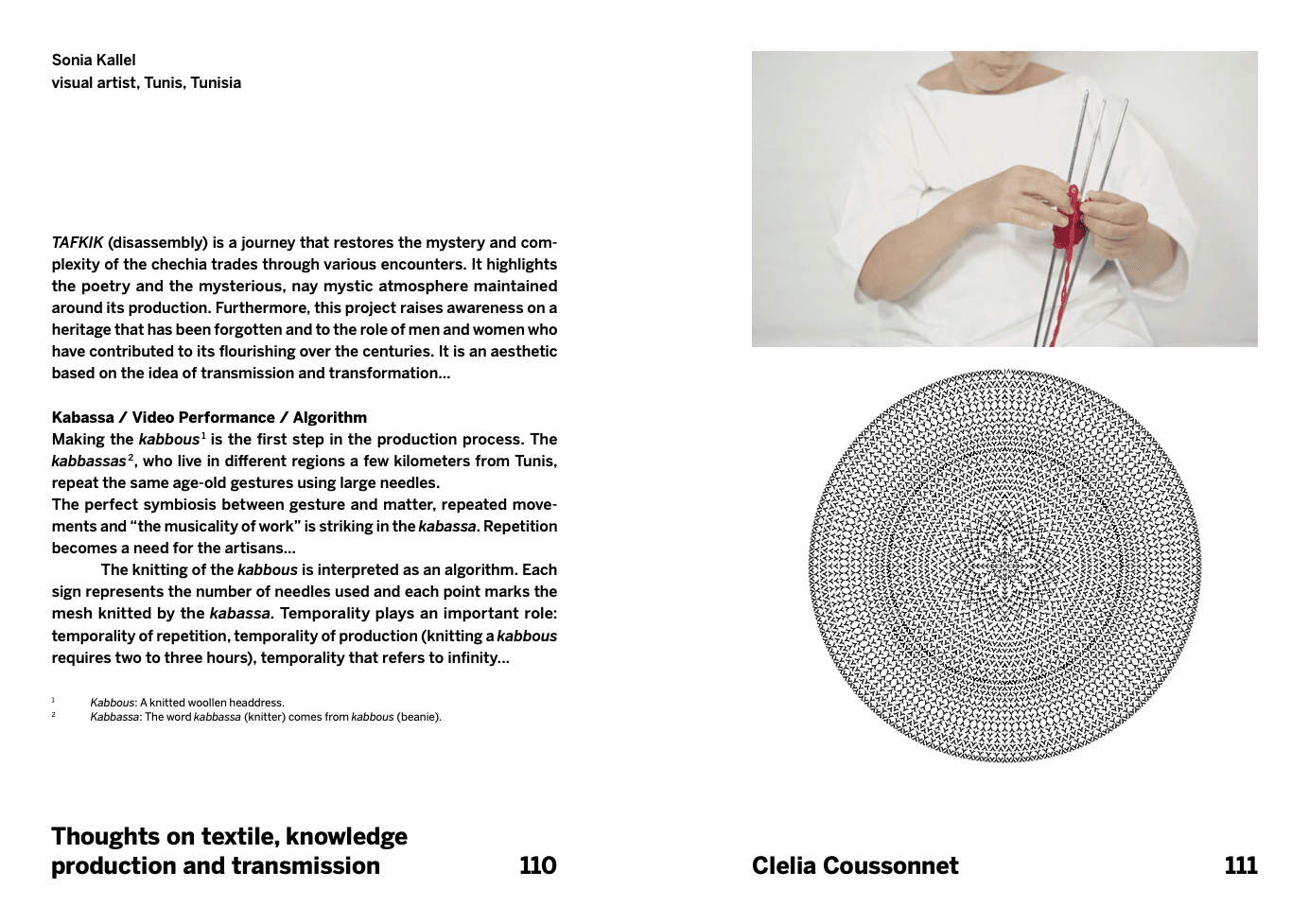
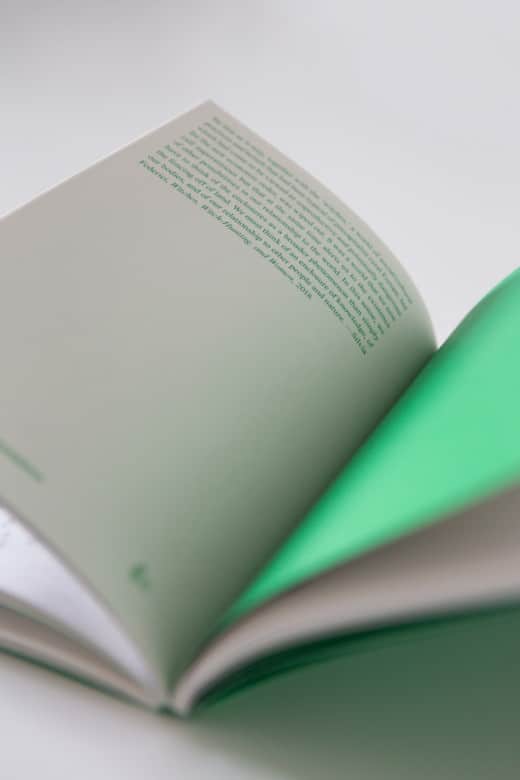

‘In Western societies, the values of functionality and pure ornamentation are overarching. With them came the understanding of historical objects as items to be categorised, classified and stored according to a specific canon and perception of knowledge. Different interpretations exist of what ethnological and archaeological artefacts, ruins and craft are, but one current has been the tendency of the West to divest such pieces from their symbolic and spiritual functions, leaving them as empty vessels.’

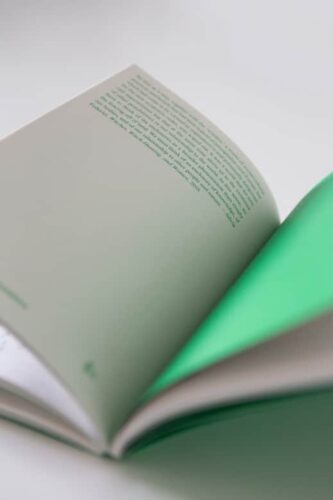
About ‘A series of essays and visual contributions critically reflecting on the current structures of knowledge within the art world.
Upon what kind of power structures of knowledge and knowing are contemporary art and artistic institutions dependent? Do practitioners in the art field reproduce oppressive Western epistemic paradigms through artistic practices and institutional structures, and if so, is there space for emancipatory ways of knowing? What are the ways that intersectional subjectivities open up new epistemic processes within the artistic field? These are among the questions and considerations that provide a critical lens for the 2019 “Rehearsing Hospitalities” programme by Frame Contemporary Art Finland, Helsinki.
The publication is comprised of contributions from artists, curators, thinkers and collaborating partners, participating in the 2019 “Gathering for Rehearsing Hospitalities”. With essays, drawings, reading lists, invitations, exercises, dialogues by Clelia Coussonnet, Rick Dolphijn, Pia Lindman, Rachael Rakes, Vidha Saumya, Sumugan Sivanesan and Irina Mutt, artist-led collective Asematila, culture centre Museum of Impossible Forms and Frame’s programming team Yvonne Billimore and Jussi Koitela.
Published on the occasion of Gathering for Rehearsing Hospitalities, Frame Contemporary Art Finland, Helsinki, from September 9-14, 2019.’
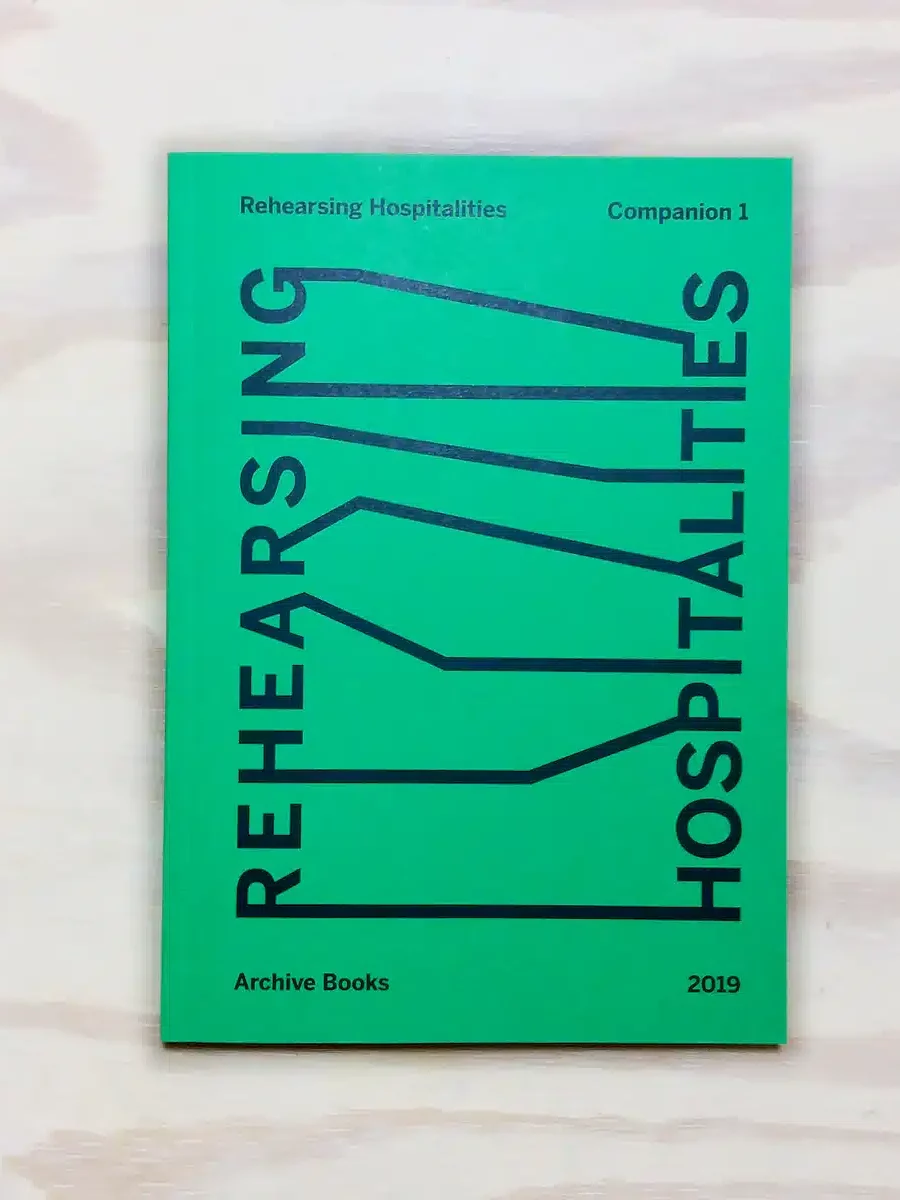
Info
Design by Lilia Di Bella
January 2020, English
17 x 24 cm, 140 pages, softcover
ISBN 978-3-948212-15-5
About ‘A series of essays and visual contributions critically reflecting on the current structures of knowledge within the art world.
Upon what kind of power structures of knowledge and knowing are contemporary art and artistic institutions dependent? Do practitioners in the art field reproduce oppressive Western epistemic paradigms through artistic practices and institutional structures, and if so, is there space for emancipatory ways of knowing? What are the ways that intersectional subjectivities open up new epistemic processes within the artistic field? These are among the questions and considerations that provide a critical lens for the 2019 “Rehearsing Hospitalities” programme by Frame Contemporary Art Finland, Helsinki.
The publication is comprised of contributions from artists, curators, thinkers and collaborating partners, participating in the 2019 “Gathering for Rehearsing Hospitalities”. With essays, drawings, reading lists, invitations, exercises, dialogues by Clelia Coussonnet, Rick Dolphijn, Pia Lindman, Rachael Rakes, Vidha Saumya, Sumugan Sivanesan and Irina Mutt, artist-led collective Asematila, culture centre Museum of Impossible Forms and Frame’s programming team Yvonne Billimore and Jussi Koitela.
Published on the occasion of Gathering for Rehearsing Hospitalities, Frame Contemporary Art Finland, Helsinki, from September 9-14, 2019.’
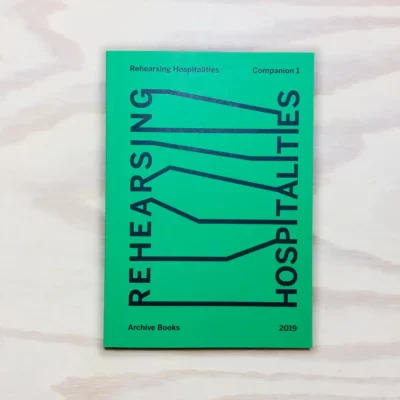
Info
Design by Lilia Di Bella
January 2020, English
17 x 24 cm, 140 pages, softcover
ISBN 978-3-948212-15-5
‘Could we imagine a different way of caring? Through tactility, we-ar-ability, keeping up the knowledge of craft, the feeling of the material? Could museums invent new, and more sensual, relations to historical relics or would it undermine them irreversibly? Is destruction even an issue? Or could we envision that conservation is using artefacts and allowing them to die when they have shared their lot of signifiers?’
— Quotes by Clelia Coussonnet, Thoughts on textile, knowledge production and transmission, 2020
‘Could we imagine a different way of caring? Through tactility, we-ar-ability, keeping up the knowledge of craft, the feeling of the material? Could museums invent new, and more sensual, relations to historical relics or would it undermine them irreversibly? Is destruction even an issue? Or could we envision that conservation is using artefacts and allowing them to die when they have shared their lot of signifiers?’
— Quotes by Clelia Coussonnet, Thoughts on textile, knowledge production and transmission, 2020

